Beha’aloscha 5782 – Excuses: Their Meaning & True Source
לזכות רפו”ש צבי מרדכי בן
הדסה ברכה בתשח”י
Consider sponsoring a shiur
Visit YTATorah.org
Shiur presented in 5779
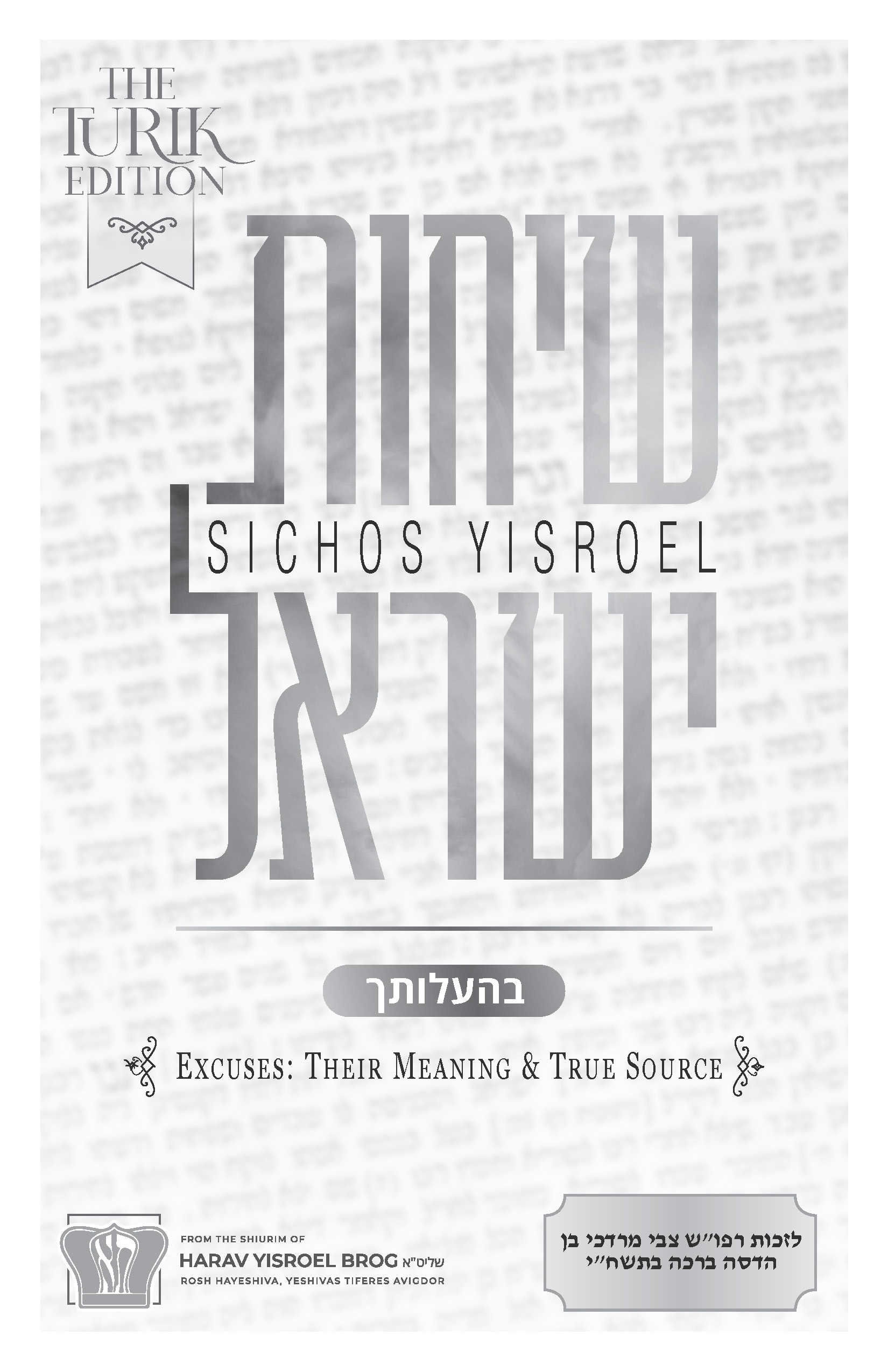
לזכות רפו”ש צבי מרדכי בן
הדסה ברכה בתשח”י
Consider sponsoring a shiur
Visit YTATorah.org
Shiur presented in 5779
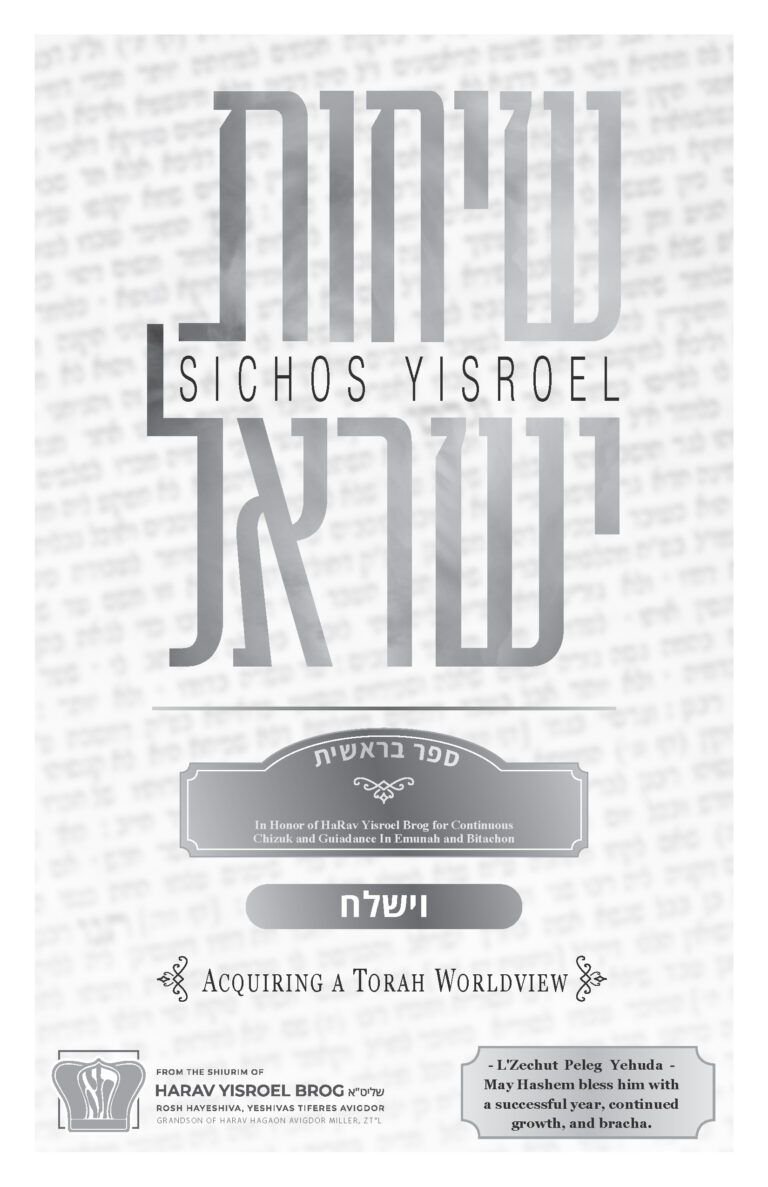
We live in a generation where the darkness is such a darkness and people have accustomed themselves to the darkness that they actually perceive as light. The passuk says, “Hashem placed the world under choshech and it became night” (Tehillim 104:20).
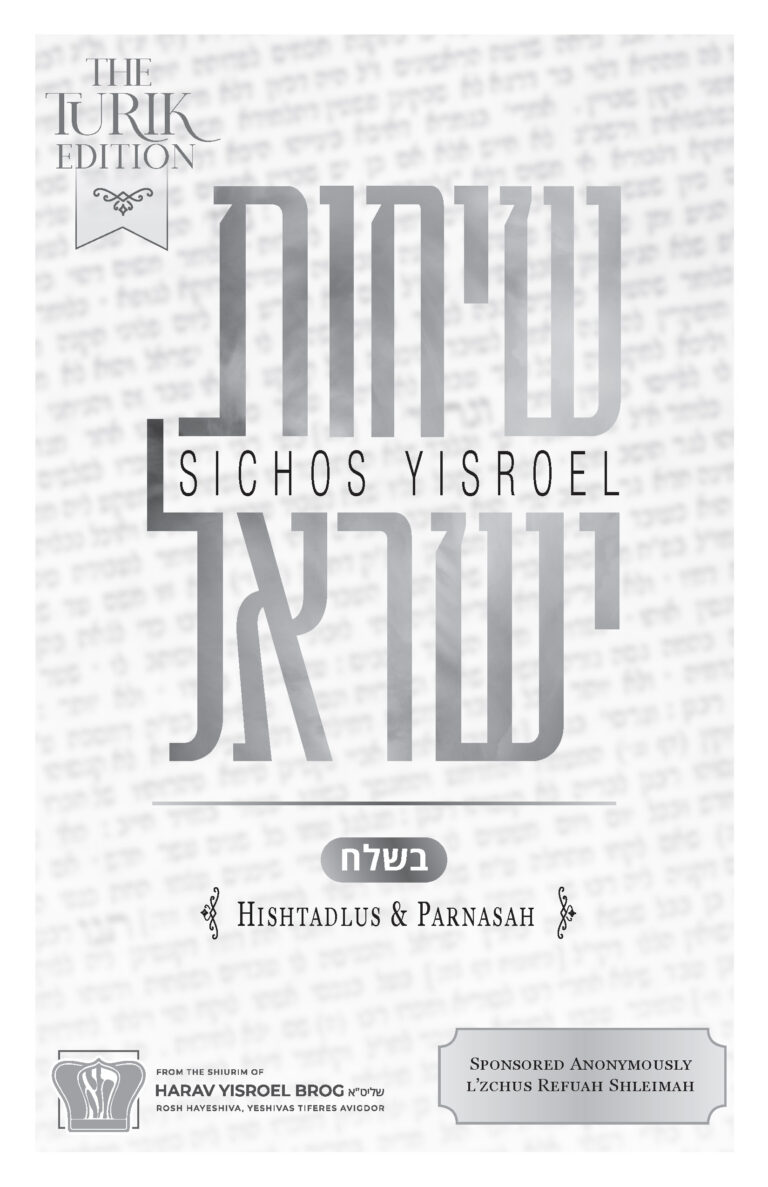
Sponsored Anonymously l’zchus Refuah Shleimah. Shiur presented in 5778.
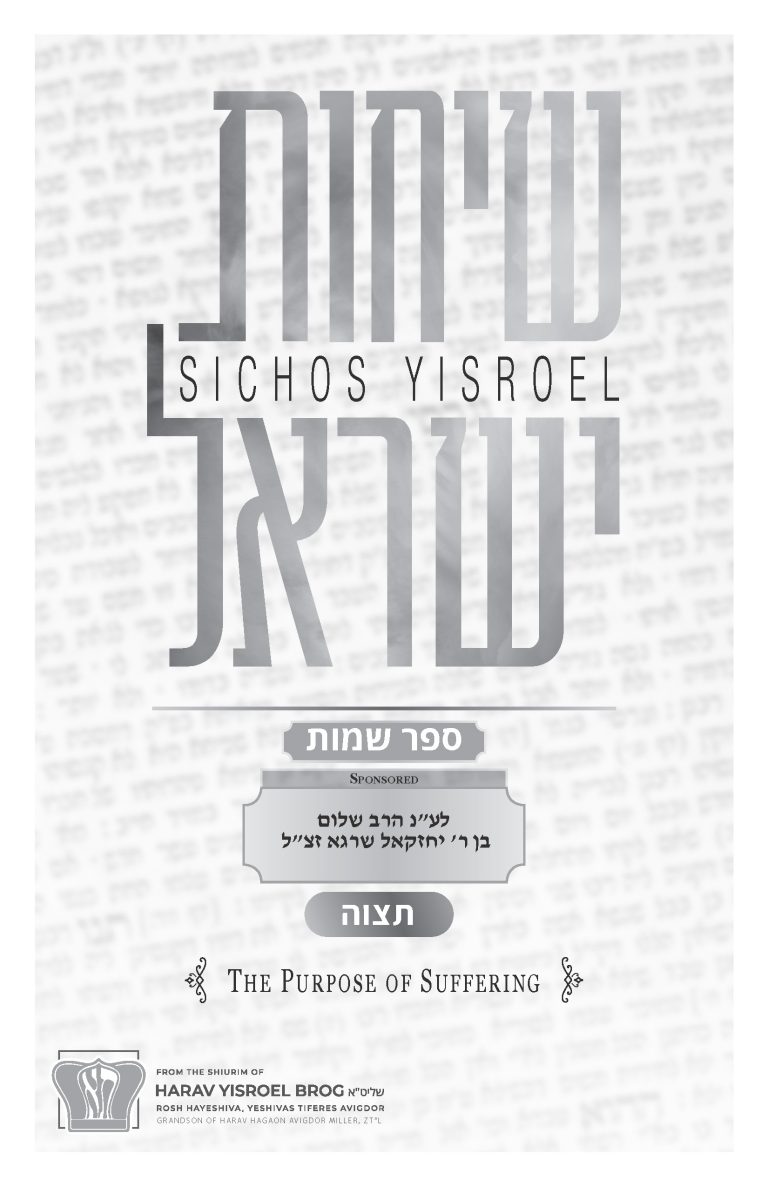
In this week’s parshah, Hakadosh Baruch Hu begins by talking to Moshe Rabbeinu and telling him “You shall command the Bnei Yisrael, and they should take for you, pure olive oil, crushed, for the lighting.” (Shemos 27:20)…Why when it’s talking about the olive oil for the menorah it says they should take ‘for YOU’?
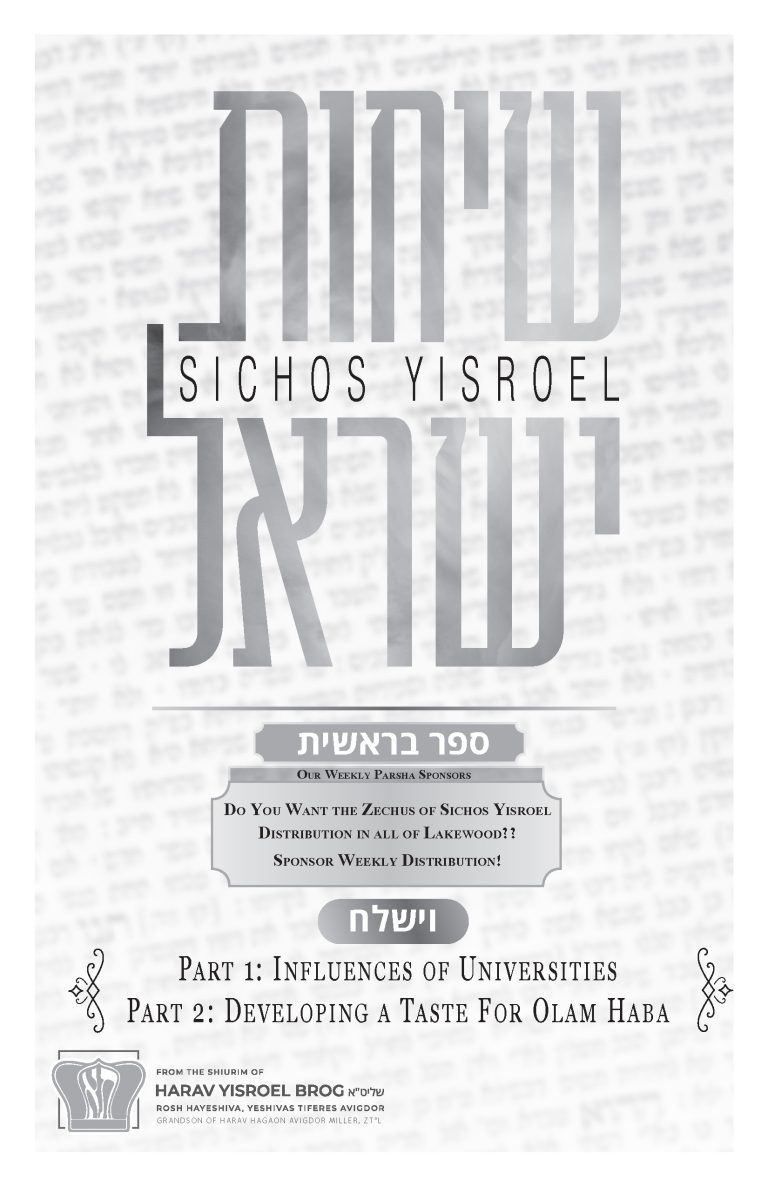
In this week’s parshah, Yaakov Avinu is encountering his brother Eisav. And Eisav was quite upset with Yaakov. Eisav came to kill him. And the emes is, you know, that Chazal tell us what really happened. The malachim that Yaakov sent to greet Eisav had to teach Eisav a lesson that he wouldn’t forget. It says they began to beat him up. Eisav wasn’t used to getting pushed around, and they pashut beat him up and he was pleading with them to stop and to have rachmanus.
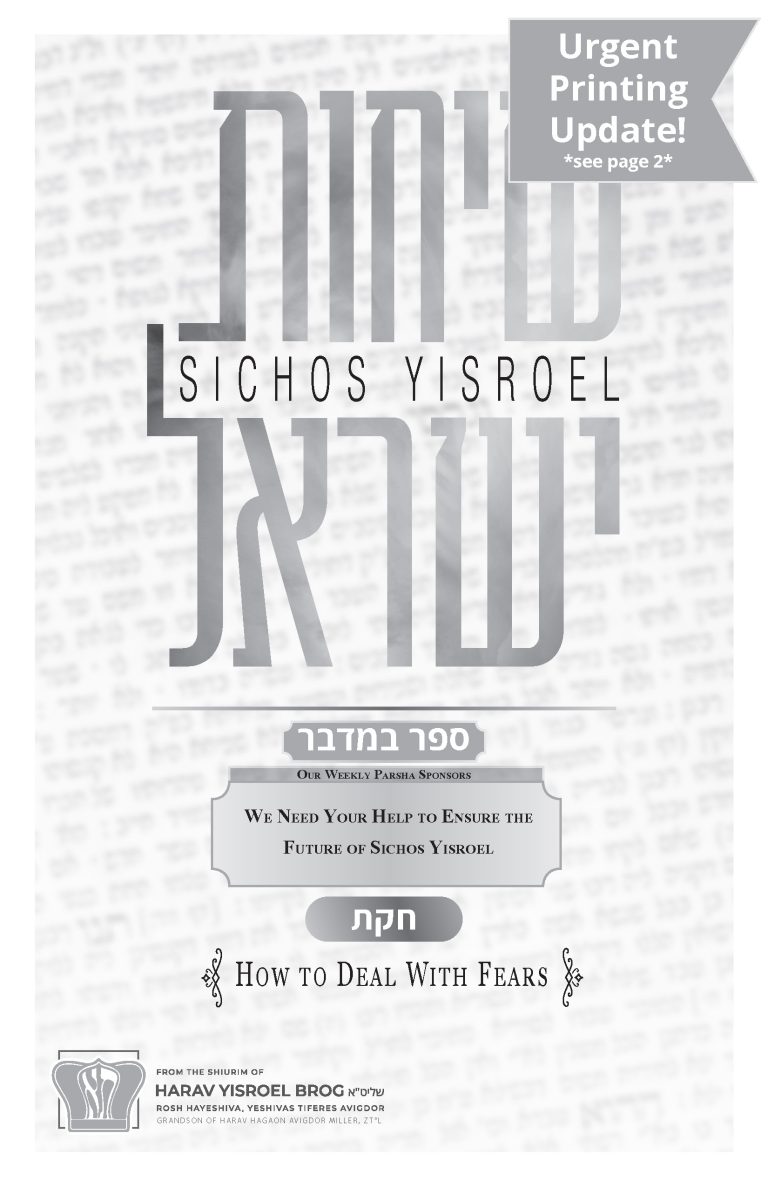
Today, we’re going to discuss how to deal with certain fears. I’m going to introduce the topic with a story first.
There was a fellow named Rav Tuvia. Rav Tuvia used to come to a mosad once a week. The rebbe’im of this mosad held a weekly meeting, and he would be present to answer questions and suggest possible answers to issues they faced. He was an expert in dealing with issues, and he would tell them how to deal with various difficulties.
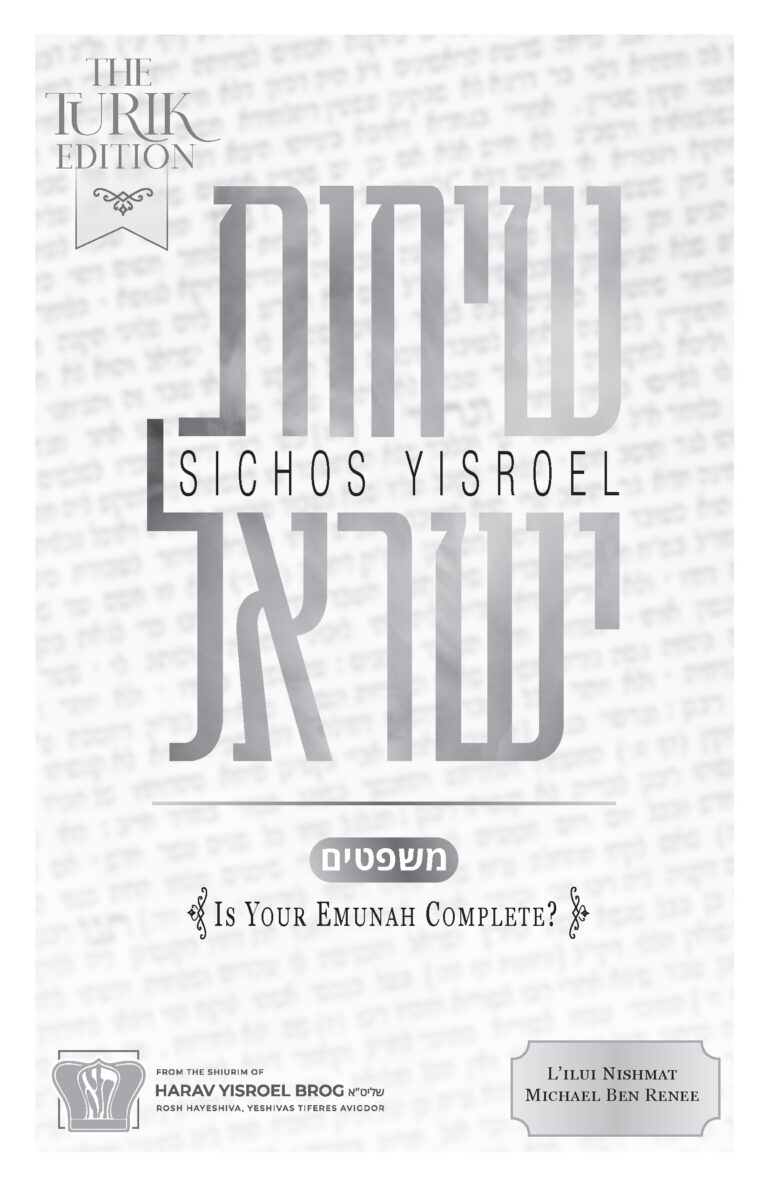
L’ilui Nishmat Michael Ben ReneeShiur presented in 5779